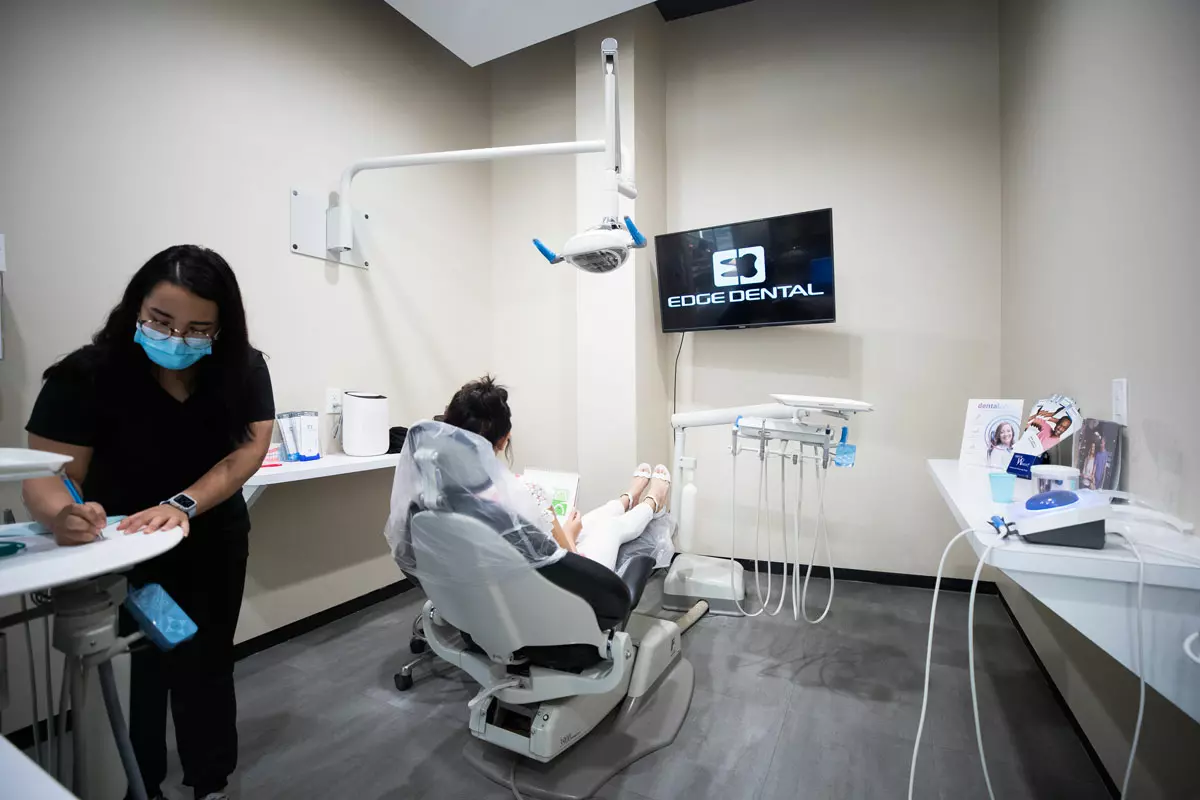Why Do I Have Tooth Pain with a Crown?
Caring for your teeth doesn’t end after getting a dental crown. Regular Dental Cleaning Near Me plays a crucial role in maintaining oral health, especially when you have crowns. Many patients ask, “Why am I experiencing tooth pain with a crown?” The answer often ties back to dental hygiene and ongoing professional care. In this article, we explore the connection between dental cleaning and tooth pain with a crown, and how to manage and prevent it effectively.
Understanding the Role of Dental Cleaning After Getting a Crown
Dental crowns are custom-made caps placed over damaged or decayed teeth to restore their function and appearance. While crowns are strong and long-lasting, they are not immune to complications. One of the most effective ways to protect your crowned tooth is through regular dental cleaning.
Dental cleaning removes plaque, tartar, and bacteria that build up around the gum line and teeth, including the areas near or under the crown. If bacteria settle under a crown, it can lead to infection, decay, and tooth pain. Without proper cleaning, even the crowned tooth can become a problem area.

Why Might a Crowned Tooth Still Hurt?
Many patients are surprised when they feel pain in a tooth that already has a crown. Here are several reasons why this happens:
1. Gum Inflammation
Bacteria from plaque can irritate the gums around the crown, especially if not removed through regular dental cleaning. This leads to swelling, tenderness, and sometimes sharp pain.
2. Decay Under the Crown
Although the crown itself can’t decay, the natural tooth underneath can. If plaque or food particles get trapped at the crown’s margins and aren't cleaned properly, decay may develop beneath the crown, causing tooth pain.
3. Improper Fit
If the crown isn’t fitting correctly, it may put pressure on the adjacent teeth or leave gaps that collect bacteria. This misalignment often leads to pain, sensitivity, or discomfort when biting.
4. Tooth Fracture or Nerve Damage
Sometimes, a crowned tooth might have an undetected crack or nerve damage. If this happens, the crown doesn’t protect the tooth from internal pain. A root canal might be necessary in such cases.
How Regular Dental Cleanings Prevent Crown-Related Pain
Scheduling professional dental cleanings every six months (or as recommended by your dentist) can help catch issues early. Here's how dental cleaning benefits crowned teeth:
· Removes Plaque Buildup: Cleaning eliminates bacteria that lead to gum disease and tooth decay, both of which can cause tooth pain with a crown.
· Detects Problems Early: Dentists and hygienists check for signs of crown wear, inflammation, and infection during cleanings.
· Maintains Crown Integrity: Cleanings keep the area around the crown healthy, ensuring the crown remains firmly attached and functional.
· Promotes Gum Health: Healthy gums are the foundation for strong teeth and successful dental restorations like crowns.
Home Care Tips to Support Your Dental Cleanings
While professional cleanings are essential, your daily oral hygiene routine plays a huge role in preventing tooth pain with a crown. Here’s how you can support your dental care at home:
· Brush Twice Daily: Use a soft-bristle toothbrush and fluoride toothpaste.
· Floss Carefully: Slide the floss gently under the crown margins to avoid dislodging the crown while still removing plaque.
· Use Antibacterial Mouthwash: This helps reduce the bacterial load and supports gum health.
· Avoid Sticky or Hard Foods: These can loosen or damage the crown, increasing the risk of discomfort and pain.
· Stay Hydrated: Water helps wash away food particles and bacteria from your mouth.

When to See a Dentist About Tooth Pain with a Crown
Even with excellent care and regular dental cleaning, you may still experience tooth pain with a crown. Don’t ignore it. Schedule an appointment if you notice:
· Persistent pain or sensitivity
· Swelling or bleeding around the crown
· Difficulty biting or chewing
· Foul taste or odor from the crowned area
Pain may indicate infection, crown damage, or another issue that requires professional treatment. The earlier it’s addressed, the more likely you’ll avoid complex or costly procedures.
Conclusion:
The presence of a crown doesn’t mean you can take a break from oral hygiene. In fact, a crowned tooth requires just as much attention—if not more—than your natural teeth. Regular dental cleaning appointments combined with good at-home care will reduce your risk of developing tooth pain with a crown. By staying proactive, you can enjoy a healthy, pain-free smile for years to come.
Comments
Post a Comment